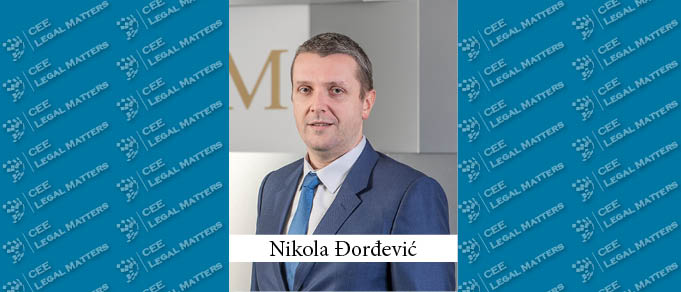The OECD/G20 Inclusive Framework on Base Erosion and Profit Shifting (IF) has agreed on 8 October 2021 a two-pillar solution to address the tax challenges arising from the digitalisation of the economy. The Republic of Serbia is one of 136 jurisdictions that have agreed to the solution.
The Pillar One envisages the development of a multilateral convention (by early 2022, so that it is signed by mid-2022, enabling entry into force thereof in 2023) by which the parties thereto will agree on a new special-purpose nexus rule permitting allocation of so-called Amount A to a market jurisdiction for which relevant multinational enterprises derive at least EU 1 million in revenue. For jurisdictions with GDP lower than EUR 40 billion, the threshold will be set at EUR 250,000. It is envisaged that 25% of residual profit (profit in excess of 10% of revenue) will be allocated to market jurisdictions. With certain additional rules to be introduced by the multilateral convention, including the cap on residual profits allocated to the market jurisdiction through Amount A in cases when the residual profits of a relevant multinational enterprise are already taxed in a market jurisdiction (a marketing and distribution profits safe harbour), the benefit for jurisdictions such as Serbia lies in the fact that it should become entitled to collect certain additional tax revenue which it would not be able to do under the “classic” tax rules. This also assumes that certain multinational enterprises will have additional compliance obligations in Serbia (although the Statement sets that the compliance costs (incl. on tracing small amounts of sales) will be limited to a minimum and that the tax compliance will be streamlined (including filing obligations) and allow multinational enterprises to manage the process through a single entity.
On the other hand, the multilateral convention will impose an obligation to the parties to remove all digital services taxes and other similar measures and to commit not to introduce such measures in the future. As Serbia does not have a digital services tax, this obligation will not require a change in its tax legislation.
Pillar Two is what has been advertised as of Friday as the imposition of a minimum 15% corporate income tax, as the rules to be imposed as part of the Pillar Two will be related to a minimum tax rate of 15%. The Pillar Two consists of an Income Inclusion Rule (IIR), which imposes top-up tax on a parent entity in respect of the low taxed income of a constituent entity; and an Undertaxed Payment Rule (UTPR), which denies deductions or requires an equivalent adjustment to the extent the low tax income of a constituent entity is not subject to tax under an IIR (both of these rules will be introduced as domestic rules and should be based on the model rules to be developed by the end of November 2021) and a treaty-based rule (the Subject to Tax Rule (STTR) which will be introduced by a multilateral instrument (by which the STTR rule will be implemented into bilateral treaties of countries that apply nominal corporate income tax rates below the STTR minimum rate – 9% – to interest, royalties and a defined set of other payments with developing countries) and which will allow source jurisdictions to impose limited source taxation on certain related-party payments subject to tax below a minimum rate.
As Serbia corporate income tax rate is 15% it appears that the Pillar Two rules will not have a negative effect on parent companies from other jurisdictions that have daughter companies in Serbia, while it is interesting to see what the position of Serbian companies having companies in jurisdictions such as Montenegro (with the tax rate of 9%) will be, although the thresholds envisaged by the Statement are probably too high for the most of Serbian companies.
By Nikola Djordjevic, Partner, JPM Jankovic Popovic Mitic


